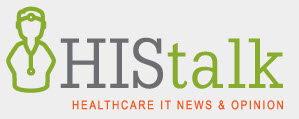01-31-2020, 02:24 AM
Promoting interoperability and change at the annual ONC meeting: Day 2
This year marked the Office of National Coordinator’s 10th Annual Meeting. Held in Washington, DC on Jan 27th and 28th, the meeting gathered leading innovators, policymakers, developers, and advocates from across the health IT landscape to discuss the latest policy and regulatory topics, as well as what’s on the horizon for the healthcare industry.
For a recap on Day 1 at the ONC Annual Meeting, click here.
Day 2 Recap
Day 2 of the ONC Annual Meeting emphasized themes from the prior day and reengaged the audience on topics centered on data access, transparency, and interoperability to improve healthcare delivery for patients and providers.
As part of the morning plenary, Lisa Lewis, ONC’s deputy national coordinator for operations and COO, spoke about ONC’s primary goal to serve the American public by executing policy to improve healthcare for everyone. She reinforced patients’ rights to own their data and patients’ right to have their data shared and moved to optimize their care. She also pointed to the existing rights under HIPAA that already enable and liberate the movement of data reinforcing the need to address data blocking across the healthcare ecosystem.
Don Rucker gave the morning keynote in which he continued to advocate for increased transparency, access, and choice as a way to help transform medicine and to put patients at the center of healthcare. He sees the healthcare sector acutely lagging behind other industries that have used data as part of their transformation and is looking to double down on ONC’s policy agenda to unleash the potential of better transparency. Similarly to increasing access and choice for patients, Rucker also highlighted the need for providers to have increased access and choice across technologies. Furthermore, he pointed to how healthcare is currently missing out on the app economy which he believes can further help empower patients. He sees APIs as a way forward in offering straight forward and elegant designed solutions that are based on robust standards. On security and privacy issues, Rucker sees available security measures as very strong already and believes that privacy considerations should give patients the ability to choose how to access and use their data rather than be forced into a choice. He sees good privacy protections already being in place via the patient’s right of access for data within HIPAA and pointedly stated that marketing campaigns to the contrary are less than helpful. As others have also highlighted, Rucker pointed out that most Americans want more transparency and insight into their care, price, and cost. Estimates are that about half a million families will face bankruptcy this year due to medical costs and Rucker sees there to be significant opportunity to give patients more control. He also emphasized the need to eliminate the disconnect between clinical and financial data, to create more provider-facing tools that enable automation e.g. for prior authorization and quality measures, and to redefine patient engagement especially as a way to address the increasing burden of chronic diseases. He concluded with an optimistic yet urgent appeal to make progress on these fronts and he renewed ONC’s commitment to moving forward on interoperability and transparency efforts to truly put patients at the center of healthcare.
The morning plenary also featured a panel that discussed balancing patient privacy with data access. The panel focused on the importance of empowering patients by giving them more access and control over their data so they can choose their best care options both clinically and financially. The panel saw patients as wanting more transparency and largely advocated for a move from paternalistic medicine to participatory medicine where patients are partners in their care and/or in research. While the panel acknowledged the need for privacy resources and education, the overall tenor favored a move towards a functional and competitive healthcare marketplace where the patient or consumer is informed and is an active decision maker in how and where their data is used.
The morning also included 14 different breakout sessions on a wide variety of topics that included maximizing the use of Prescription Drug Monitoring Programs, advancing API and FHIR, assistive technology, and the Clinical Response through Emerging Technologies (CRET) initiative among others.
Afternoon session started with a panel discussion on the challenges and opportunities of merging clinical and financial data as a way to measure and improve value and transparency. The panel picked up where Don Rucker left off in his keynote and dove deeper into considerations for creating standards and merging currently bi-furcated clinical and financial data. The panel pointed to the different standards across these systems – the HL7 standard used for clinical data and the administrative HIPAA EDI transaction standards used for financial data – and discussed possible ways to begin the process of merging them to generate efficiencies in the system and reduce patient harm. A significant concern the panel discussed was around the myriad different systems and tools used across health systems and the difficulty of reaching consensus on new standards, technical data extraction concerns, creating industry buy-in, and complicated implementation processes for new standards. One solution proposed was to start simple and to converge around defined use cases and from which added capabilities can be built. The panel agreed that there are opportunities for the industry with FHIR as a singular standard and that incremental forward progress is possible.
The day concluded with a congressional roundtable where bi-partisan congressional staff provided perspectives from Capitol Hill on healthcare and health IT issues that Congress is trying to address and improve.
The two days brought together hundreds of leaders in the health IT space and ONC advanced many timely issues while setting an encouraging policy direction with continued commitment to increased interoperability, transparency, and improved access and choice for patients.


